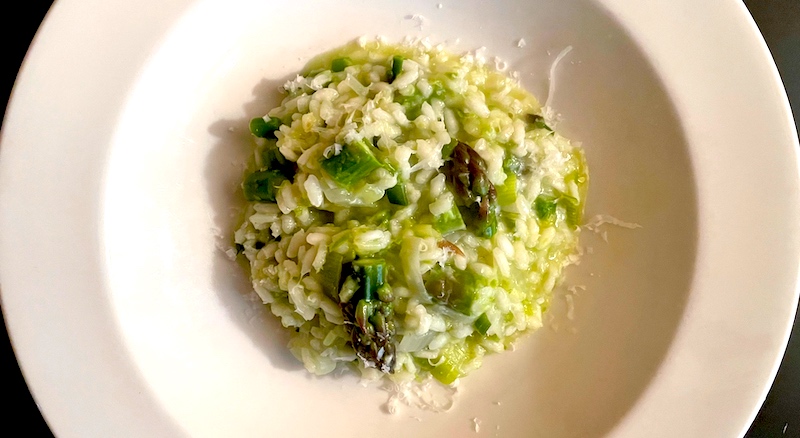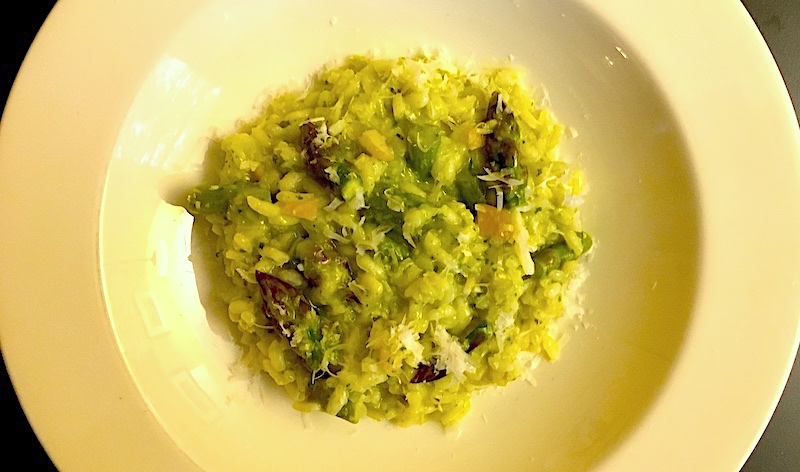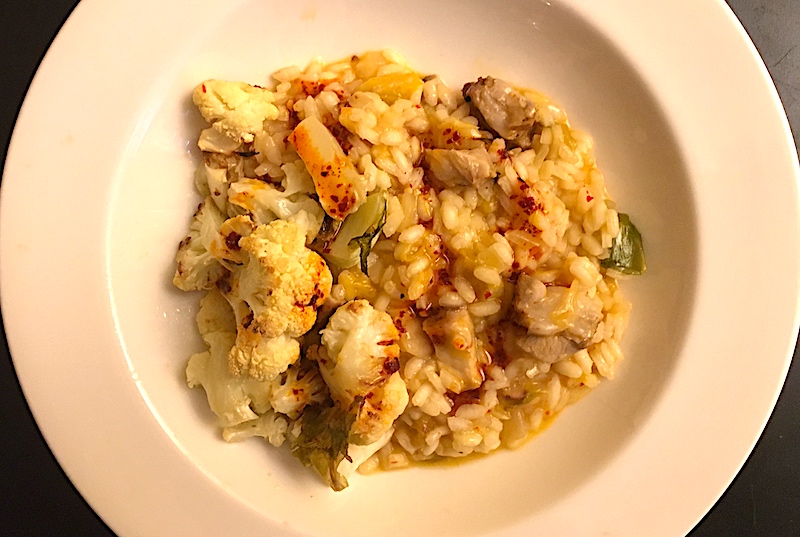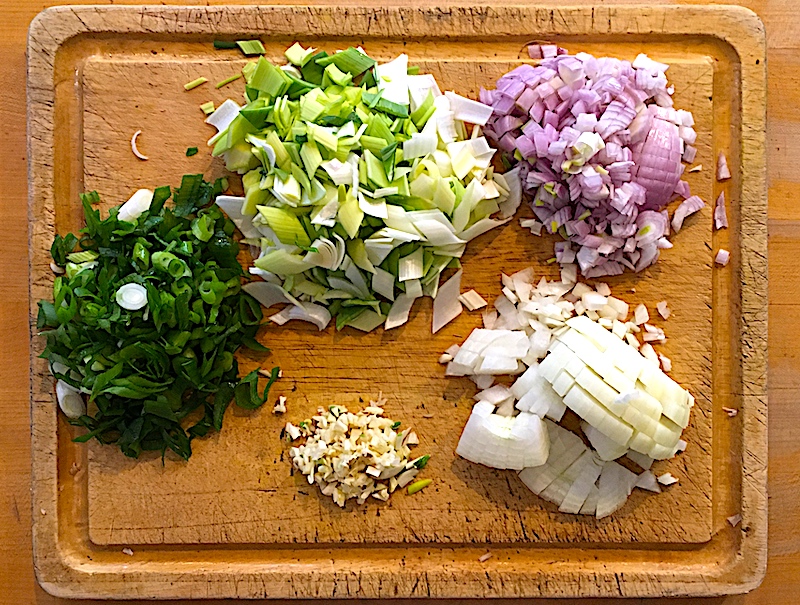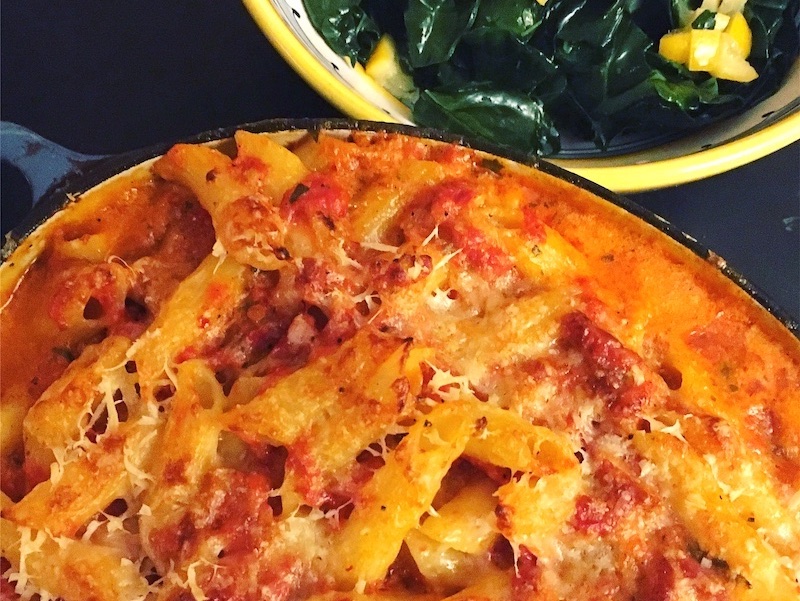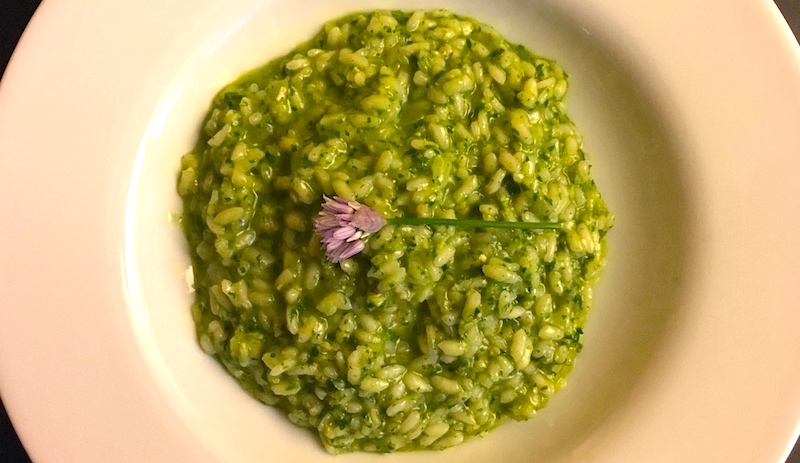
Making the Most of Summer's Best: Super Easy Herb Risotto
I first saw this spectacular dish years ago among the drool-worthy photos at Portland's late, lamented Florentine outpost, Burrasca, and was intrigued with its verdant green color and creamy texture. You see, we eat a lot of risotto around here, since it's easy to adapt to whatever you have in your pantry or vegetable bin—it's quick, around twenty minutes cooking time—and, in summer, doesn't heat up the kitchen. Summer is also when fresh herbs are plentiful in gardens and at farmers' markets.
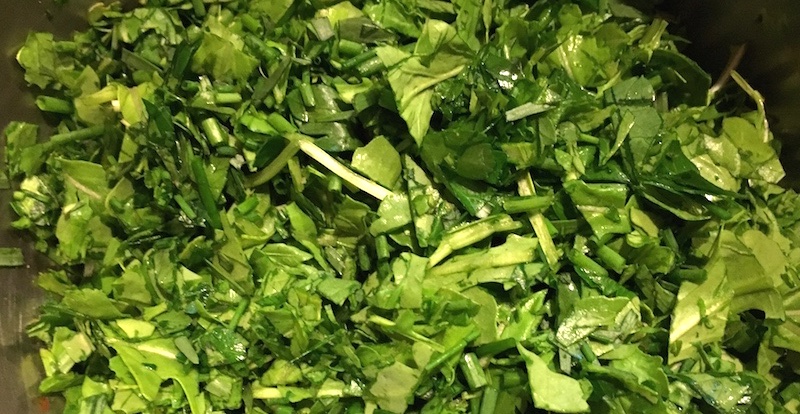 Plus, if you make it in the summer and get too warm standing in front of the stove, you are allowed a glass (or more, depending on how quickly you drain it) of a chilled white or rosé.
Plus, if you make it in the summer and get too warm standing in front of the stove, you are allowed a glass (or more, depending on how quickly you drain it) of a chilled white or rosé.
For this particular recipe, I had on hand a fair amount of arugula and parsley I'd bought at the farmers' market over the weekend, as well as chives and tarragon from the garden, but you can use any greens that come to hand, like spinach, chard, sorrel, kale, chervil, dill, basil or the like. Eminently flexible, you can design your own flavor profile—I'd only caution you to not overload the mixture with stronger-tasting herbs, but let them weave in and out of the milder ones.
Risotto Alle Erbe/Herb Risotto
3 Tbsp. olive oil
2 Tbsp. butter or margarine
Half of a medium yellow onion, chopped fine
3 cloves of garlic, minced
2 c. arborio or other short-grained rice
1 c. white or rosé wine
5 c. chicken stock
3 c. mixed green herbs (I used arugula, parsley and chives), chopped fine
2 Tbsp. tarragon, chopped fine
2 c. parmesan or romano, grated fine
Heat olive oil and butter over medium heat in large saucepan until it shimmers, then add onion and sauté until translucent. Add garlic and sauté briefly, then add rice and sauté for 2 minutes, stirring constantly to prevent sticking.
Add wine and stir until it is absorbed into the rice, then begin adding stock a ladle-full at a time, stirring frequently, allowing the stock to be absorbed before adding more (I keep the stock warming in a pot on a nearby burner—it absorbs much more quickly when it's hot). When about half the stock has been used, add the finely chopped herbs and stir them in until they wilt slightly, then continue adding the stock until the rice is slightly chewy and the risotto has a creamy texture. Add 1/2 c. parmesan and stir to combine. Serve immediately.
Check out these terrific risotto recipes and expand your risotto horizons!
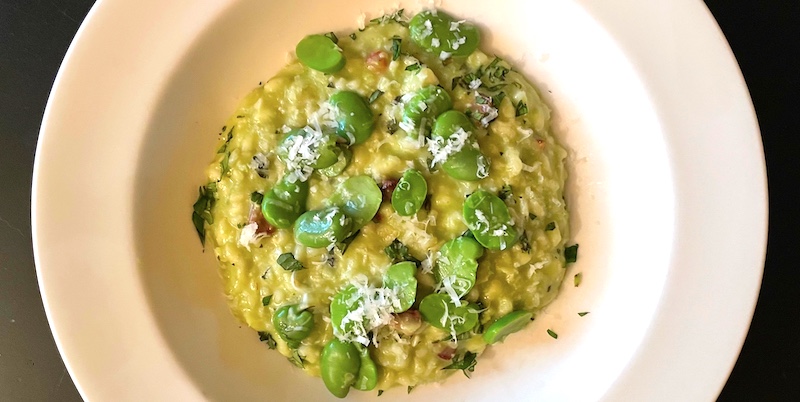
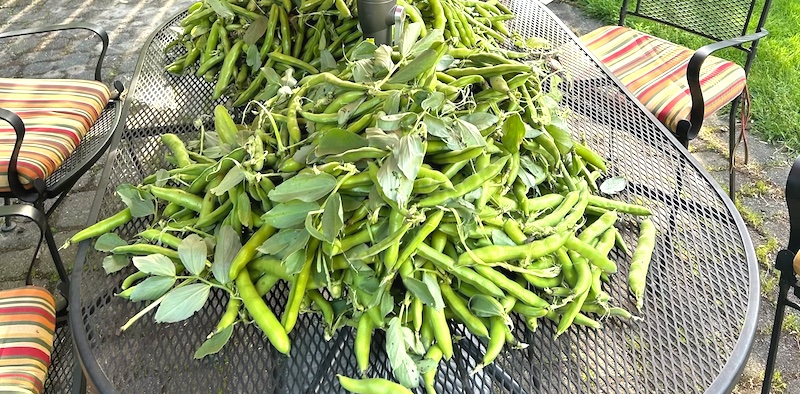 Above is his second harvest of fava beans. He shared some of the first picking, which I added to a salad under a gorgeous filet of grilled salmon, then he asked if I could help out with this second massive haul. My answer was something akin to "Hell yes!" and I rushed over with bag in hand, coming home with at least five pounds of pods.
Above is his second harvest of fava beans. He shared some of the first picking, which I added to a salad under a gorgeous filet of grilled salmon, then he asked if I could help out with this second massive haul. My answer was something akin to "Hell yes!" and I rushed over with bag in hand, coming home with at least five pounds of pods.
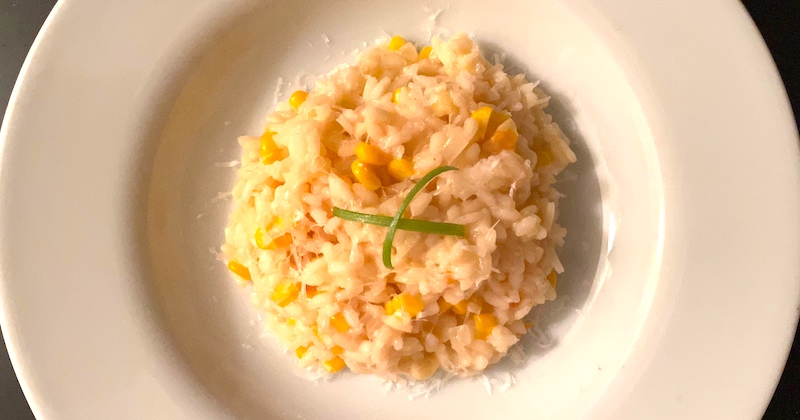 Across the street in front of our house was another row of houses identical to ours, beyond which stretched another field, this one planted with row upon row of corn. All the kids on our street would play hide-and-seek in that field, losing each other in the sameness of the shadowy stalks that stretched into the sky, their tassels glowing in the evening light. During the late summer I'd often wander off into the field on my own and pick an ear or two, peeling back the green husk and nibbling the sweet raw corn that always tasted better than anything boiled and buttered, and only emerge when I heard my mother calling from the front porch to come in for dinner.
Across the street in front of our house was another row of houses identical to ours, beyond which stretched another field, this one planted with row upon row of corn. All the kids on our street would play hide-and-seek in that field, losing each other in the sameness of the shadowy stalks that stretched into the sky, their tassels glowing in the evening light. During the late summer I'd often wander off into the field on my own and pick an ear or two, peeling back the green husk and nibbling the sweet raw corn that always tasted better than anything boiled and buttered, and only emerge when I heard my mother calling from the front porch to come in for dinner.